Hire Education - Africa- Europe- North America
For an unforgettable trip with all the gang, eschew standard villas in favour of something spectacular. From Airstreams to windmills, Fleur Rollet-Manus has the key to the door
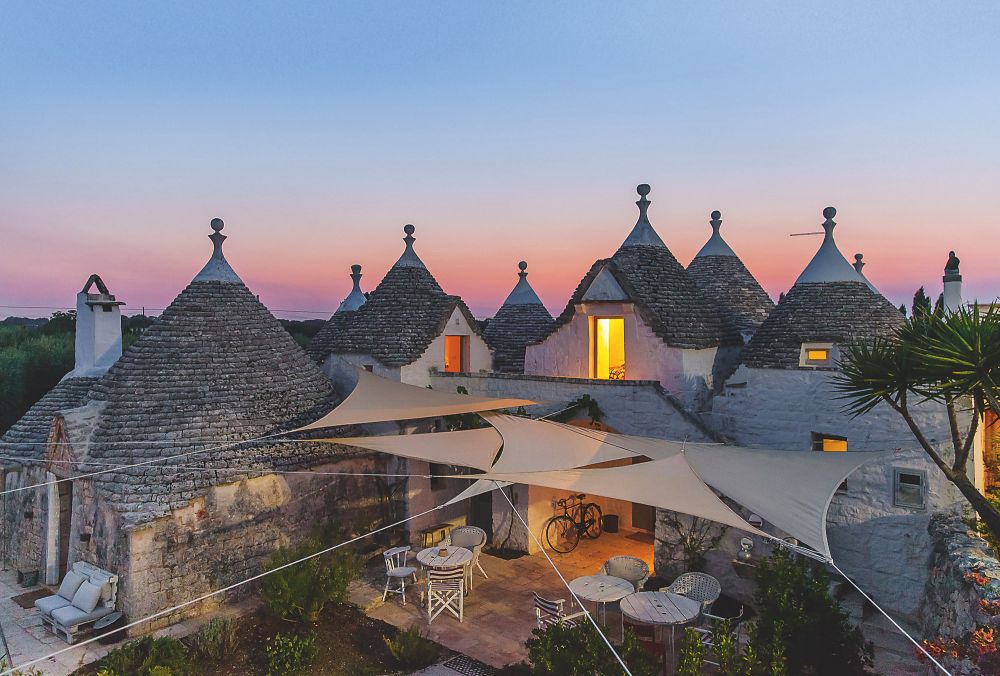
For an unforgettable trip with all the gang, eschew standard villas in favour of something spectacular. From Airstreams to windmills, Fleur Rollet-Manus has the key to the door
Give traditional villas the boot and head to Puglia, Italy’s southern heel, where clusters of conical-roofed, whitewashed houses sprout like mushrooms from the ground. You’ll find traditional trulli spread across the Bari, Brindisi and Taranto provinces, but the most extensive concentration can be found in Monti, Alberobello, where over a thousand huddle together.
Archaeological discoveries in the region can date the Pugliese domiciles back to the Stone Age, but the most common tale told to explain their existence takes root in the 14th century. Land legislation dictated that any area with liveable dwellings would be subject to tax, so skilled stonemasons created trulli in a fashion that meant they could be dismantled with the removal of a single brick. Despite this collapsible quality, the dry-stone structures are incredibly durable, many lasting for hundreds of years.
Most comprise three to four bedrooms (sleeping four to six) with communal dining areas beneath the domed roof. Family and friends will enjoy the social aspect created by the central space and interconnecting rooms. Nicholas and Sarah, the owners of Trulli Italy trulliitalyinpuglia.com moved to Puglia in 2005 to renovate their own trullo, and have since extended their portfolio significantly. Visiting in November offers guests the chance to roll up their sleeves and help with the olive harvest and first pressing of the oil using a traditional stone press. With a similar wealth of local knowledge, Trulli Online has been inviting guests to experience its beautiful collection of individually owned trulli for over 15 years. Best for groups is Borgo Specchiaruzzo, accommodating up to 14 guests across six bedrooms. Renting a car will give you the freedom to explore the winding country lanes, perfumed by the heady scent of citrus groves; public transport is sparse.
Trulli are best suited to self-catering, allowing guests to make the most of an abundance of local produce. Stock up on essentials at Ostuni’s Saturday market, a 20-minute drive away. Back at base, the fairy-lit garden demands that dinner be taken alfresco. Load the table with plates of orecchiette pasta smothered in a cime di rapa sauce before raising glasses to the good fortune that brought you here. Saluti!
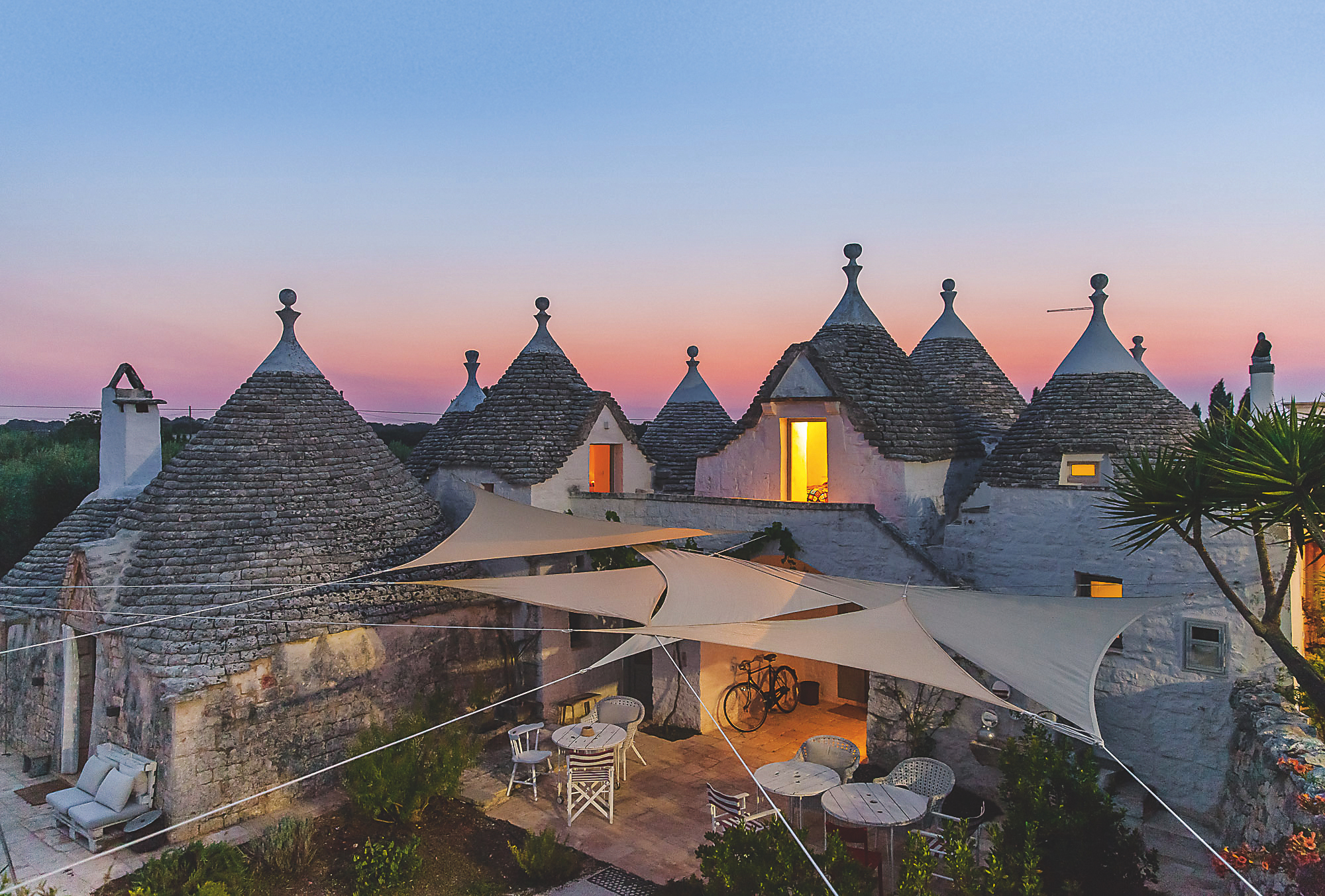
Borgo
Specchiaruzzo is available to
hire from £1,434 for a 4-night
stay. trullionline.com
Photo: Trulli Online
Even the most highly skilled navigators will find their maps useless in a Moroccan medina, as the maze of narrow corridors, rows of textile merchants and towering walls conspire to confuse. Uniform Moroccan homes huddle side by side to form this intricate medina web, as historically riads were built adjoining on three sides without exterior windows and only identifiable through heavy cedar doors. Building skywards as opposed to outwards helped increase a family’s privacy in areas where buildable land was scarce. In contrast to the nondescript exterior, once inside a riad you are transported to a vibrant oasis filled with palms, citrus trees and colourful zeliji tiles. ‘Riad’ translates to ‘garden’ in Arabic, with a lush space forming the central hub of nearly every home, the many rooms leading off from it. The open-plan layout lends itself to grand group getaways.
A recent boom in tourism
to Moroccan has seen a flurry
of dilapidated 18th- and
19th- century riads revamped
as intimate guesthouses, such
as the elegant Dar Hanane
dar-hanane.com by Pure
Riads in Marrakech. Fierce
competition exists between
riad owners, which has
helped keep prices low: even
some of the most luxurious
cost less than basic hotel
accommodation in European
capitals. Hotel and Ryads
manages an excellent range
of properties. Our pick is
Riad Cinnamon, in an old
merchant’s house. Walls are
decorated in regal navy and
vibrant turquoise, bathrooms
are dripping in gold and the
dipping pool is the ideal place
to refresh while sipping on
fresh mint tea. Marrakech
may have the monopoly with
over 800 riads (and rising)
but Hotel and Ryads also
offers outposts in Fez,
Essaouira and Casablanca.
Morocco is not the place to go self-catering. Meals are
inexpensive here and Riad
Cinnamon comes with its own
kitchen staff and charges
around £5pp per meal. Tagine
is the speciality. The huge
conical earthenware pots are
laden with rough-cut beef or
lamb, preserved lemons, ghee,
saffron, fenugreek and saffron
before being taken to the local
hammam to make use of its
farnatchi (wood fire), where
the tagine is placed in the
embers to cook for six hours.
The staff then bring it back
to the riad for the grand
reveal, set on a beautifully
laid dining table .
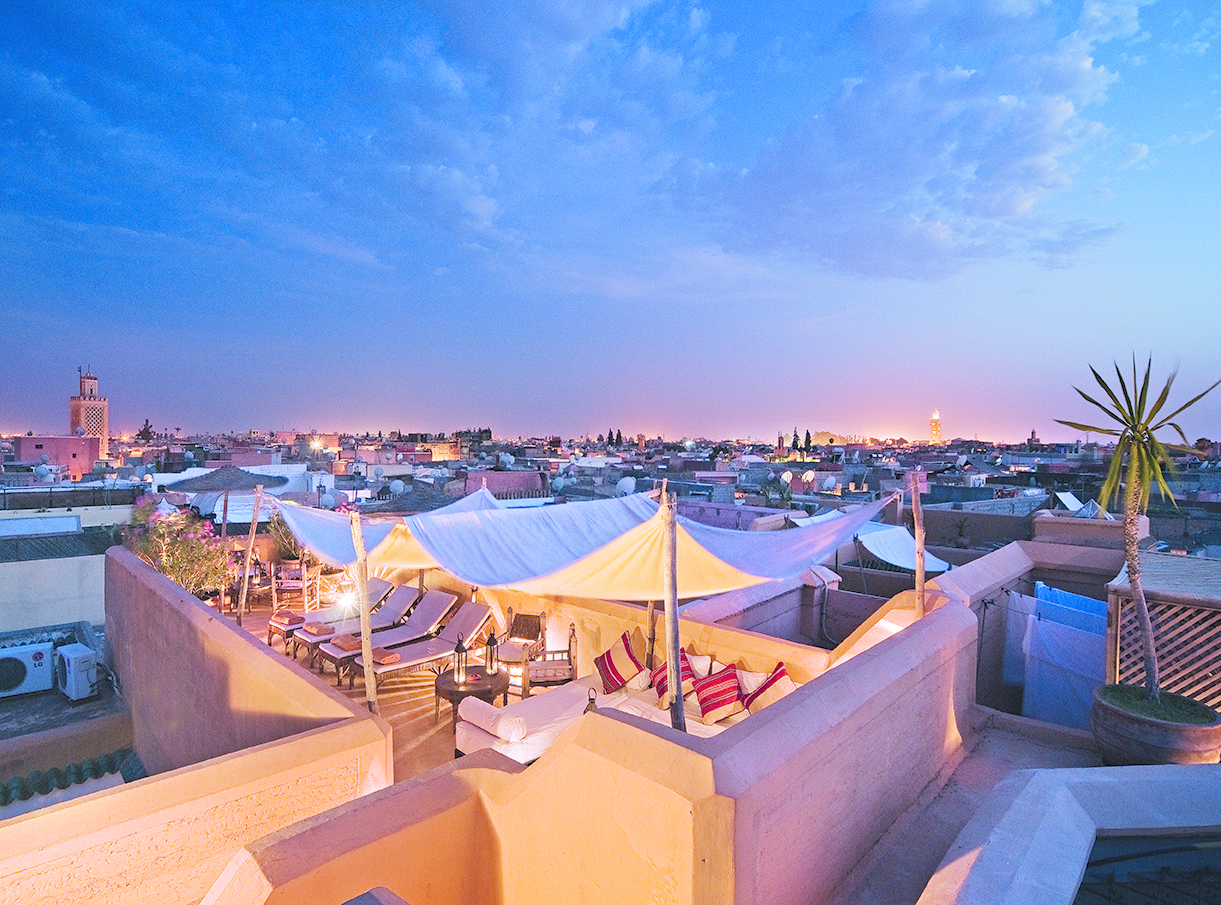
Riad Cinnamon
sleeps up to 16 and is available
to hire exclusively from £624
per night. riads.co.uk
Photo: Alan Keohane
In the 1930s, ‘trailering’ became a popular pastime in the US thanks to Wallace Merle Byam, inventor of the Airstream, whose silver bullet appearance is as synonymous with road tripping as a Bruce Springsteen album on the car stereo. Byam built the original trailer for his wife so she didn’t have to sleep on the ground. Initially, he attached a tent to a Model T chassis, but later swapped out the canvas for an aluminium shelter, adding a stove. Et voilà: a new travel trend was born. If, like Wally’s wife, you are less than happy with roughing it and prefer a smattering of mod cons to be within arm’s reach, then America’s new wave of chic trailer parks are just the ticket. Unlike Byam’s early design, two people can comfortably sleep in the modern Airstreams and most come with double beds, good showers and kitchenettes.
One of the best examples of
the classy trailer park genre is
in Marfa, Texas, (population
2,121). Open since 2006, El Cosmico has seven
refurbished vintage trailers,
three tepees, and eight safari
tents, each sleeping two.
Hiring of the whole site is
possible, with room for scores
of pop-up tents on the 7ha
grounds, plus 30 extra tents
available to hire. Opt to stay
in bright blue Vagabond, or
Imperial Mansion (Beyoncé
once bedded down here) with
its woollen pillows handmade
in Bolivia, private outdoor
shower and a patio for dozing
in hammocks, stargazing and
practising the sweet art of
doing nothing. Once you tire
of that, borrow a bike to cycle
into Marfa. The desert town
has a long history of inspiring
bohemians, artists and the
odd cowboy with its Wild
West landscape. While there,
visit La Mansana de Chinati
juddfoundation.org – the
original workspace of the great minimalist artist
Donald Judd. The town’s
influence is so widespread
that hip hotel brand Ace has
called upon its retro aesthetic
for inspiration in shaping its own identity. Fancy
something sleeker? In the
heart of California’s Sonoma
wine country, spa-inspired
bathrooms, boutique hotel
bedding and pinot packages
for sipping round the
campfire come as standard at Autocamp. It’s suitable
for between five and 130 and
cook-outs using top-notch
local beef are a speciality.
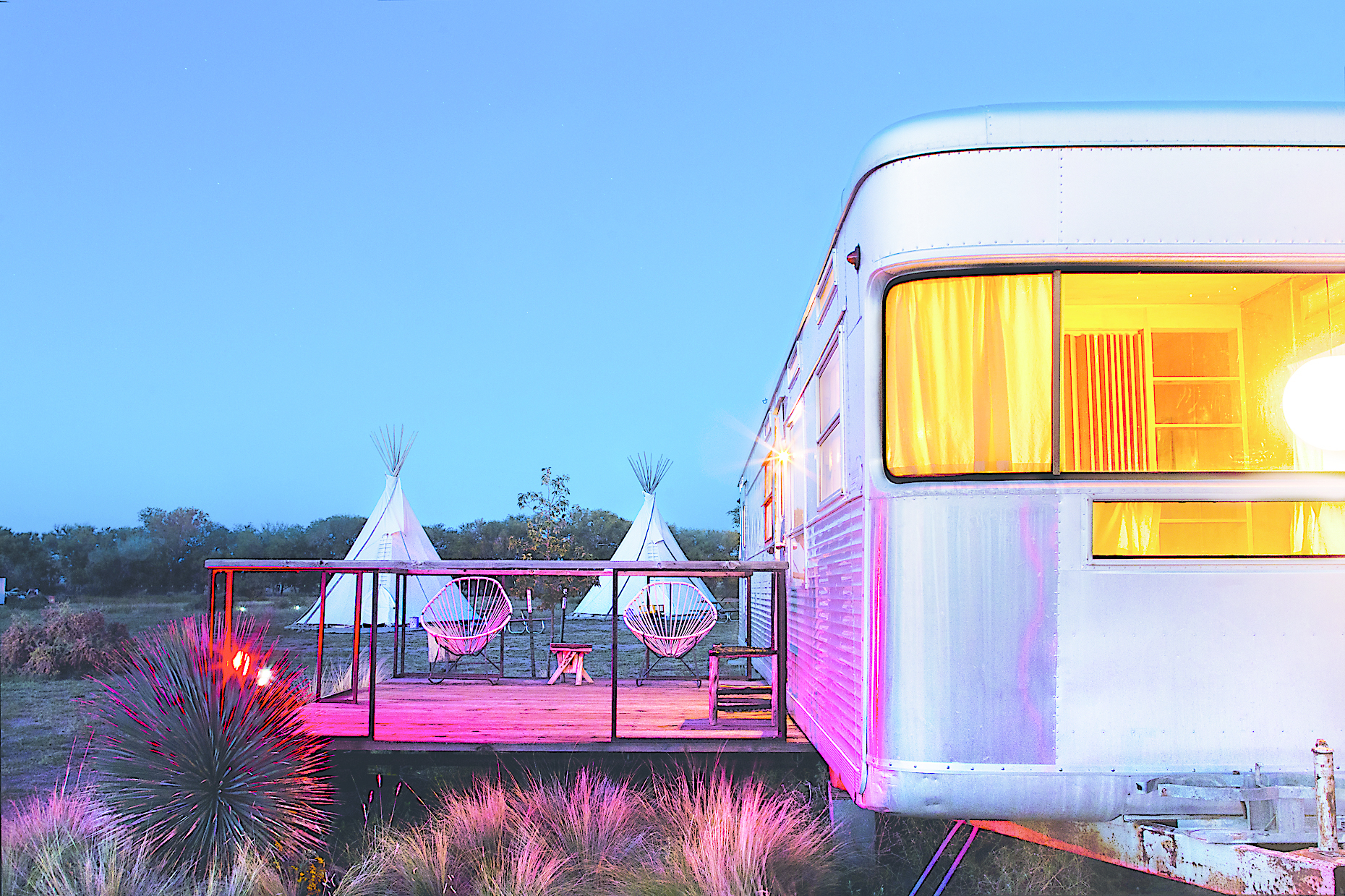
Two-person
trailer from £108 at El Cosmico. elcosmico.com
Two-person trailer from £144
at Autocamp. autocamp.com
Photo: Nick Simonite
Once upon a time, legend saw fair maidens rescued from castle towers by chivalrous knights, monarchs would escape the heat of battle as castles were won and lost in a landgrab spanning centuries. As war became less frequent, the castle became a symbol of status and wealth; lord, ladies, counts and countesses commissioned their own. After both World Wars, many of these castles were left in ruins, and by the 1960s an average of two per week were being torn down across the UK due to the staggering cost of upkeep. Thankfully, many survived and have been repurposed into sumptuous lodgings fit for royalty. Gather your knights and take over your own fortress – even the smallest sleep at least 30 noblemen and women.
Among the 90 properties in
its portfolio, Celtic Castles
boasts one that was recorded
in the Domesday Book.
Amberley Castle played host
to a revolving door of royalty
throughout its 900-year
history, including Elizabeth I,
Queen Elizabeth II and
Henry VIII, who came here
seeking divorce counsel,
before offering its servicesas a plush rentable residence.
Known locally as the ‘Pearl of
Sussex’, its working portcullis
is lowered daily at sunset.
Catering is perfect for parties,
with the Queen’s Room
restaurant available for
exclusive use for 56 guests.
A typical five-course menu might feature mackerel served with wasabi, apple, cucumber and yuzu, followed by local beef and, at this time of year, Jersey Royals.
Augill Castle, meanwhile, was built in 1841 by John Bagot Pearson to overshadow his brother’s own house further down the hill. The result? A majestic vision of a medieval castle equipped
with turrets, towers and
intricate lattice windows.
Current custodians Simon
and Wendy Bennett rescued
the dilapidated castle in the
hopes of turning it into a
family home. Nowadays, the
17-bedroom residence hosts
raucous dinner parties
followed by banquet-style
breakfasts. The baronial
dining room features an
Italian-style menu featuring
a majority of ingredients
sourced within a few milesof the castle. Cumbria meets
Umbria with slow-cooked
lamb ragù It’s rounded off
with an excellent selection
of British cheeses and molten
chocolate pudding.
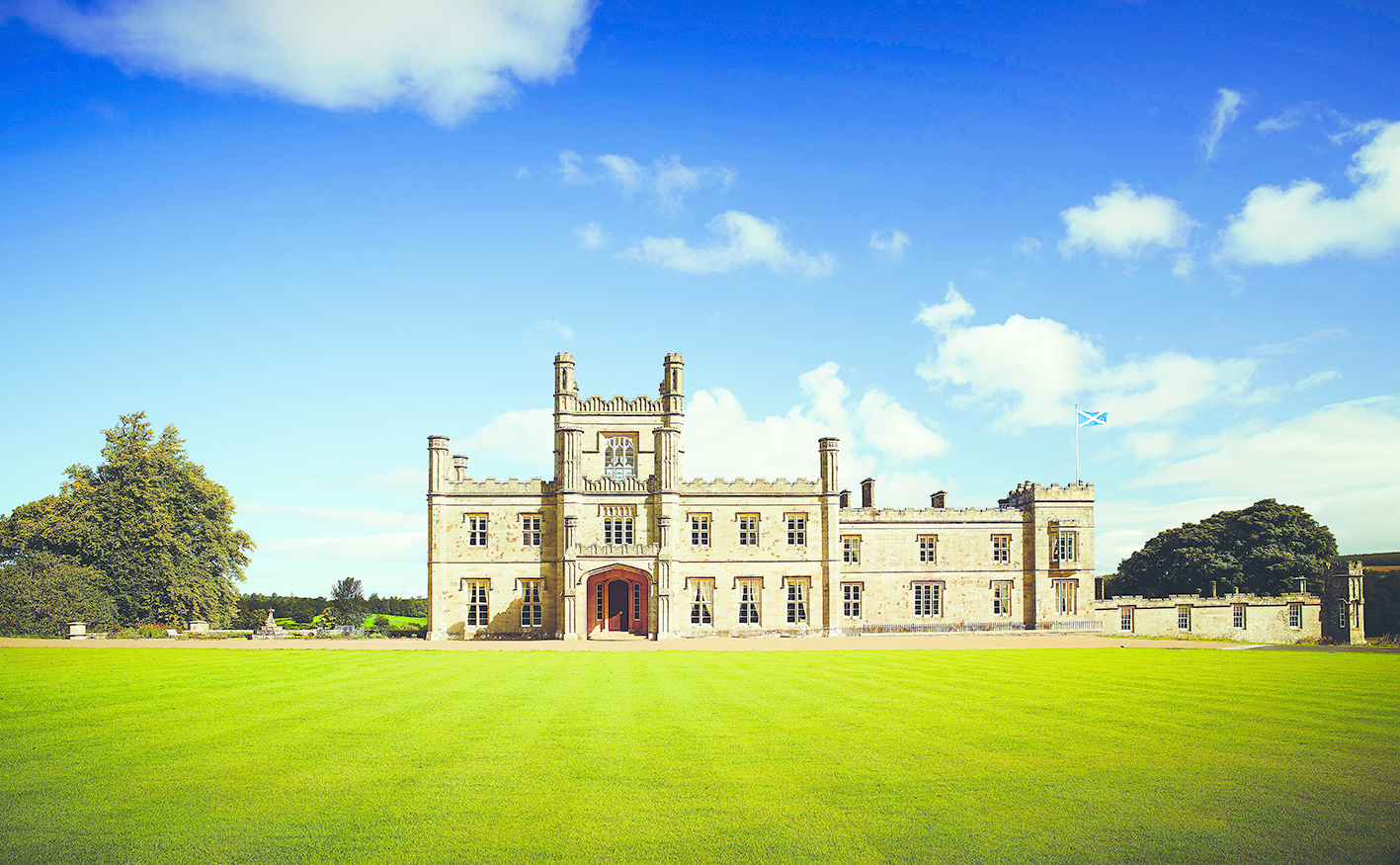
Augill Castle
is available to hire from
£10,200 for 2-night stays,
including dinner, bed and
breakfast and afternoon tea.
Amberley Castle is available
to hire from £15,000 per
night on a bed and breakfast
basis. celticcastles.com
Photo: Celtic Castle
Historically, windmills were developed to mechanise water-pumping and grinding cereals, with the first known design emerging in Persia in 900AD. By the 14th century, they were used to harness wind power all over the world, easing the production of everything from paper and paint to gin and mustard. Post-Industrial Revolution, however, and overtaken by the growing number of coal-powered factories, many mills were left to rack and ruin. Host Unusual puts the wind back into the sails with its collection of 16 wind and water mills that have been refashioned as quirky group lodgings. The self-catering accommodation suits both smaller groups and multi- generational families given the ample interior space, cosy circular dens found at the top of towers and secluded countryside where the majority of mills are found.
Of the 70 or so windmills scattered across the Cyclades, the sherbet-hued Santorini Windmill Villas are among the most attractive. A world away from the selfie-stick- wielding crowds of Oia, the three mills that each sleep five are perfectly positioned between the capital of Fira and the whitewashed village. A breeze cools during the scorching summer months and at sunrise the windmills are bathed in dusty pink. Start with the complimentary local fruit basket before firing up the barbecue. Closer to home, in the heart of the Welsh countryside, Llancayo Windmill (sleeping 12) was built in 1813 as a grain- grinding mill and destroyed in a fire 17 years later. The eyesore stood as a blight on the horizon until purchased by a developer in the late 1990s. After an extensive restoration project, the doors were flung open in 2010.
The five-storey windmill (sleeping five) adopts an industrial feel with exposed wooden beams, stark white walls and wrought-iron fittings. Two of the bedrooms are located within the tower itself and the remaining four in the adjoining cottage. Step outside the front door, cross the corn fields and followthe river down to the market town of Usk, where you’ll find a cluster of friendly pubs – try the Nag’s Head nagsheadusk. co.uk for its hearty lamb pies. Serious ramblers should seek out the trails of the Black Mountains, just an hour’s drive away, while keen fishermen can purchase a fly-fishing licence from Sweet’s the fishing shop before tackling the River Usk
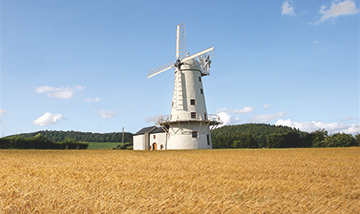
Santorini Windmill, from £139 per night; Llancayo Windmill, from £1,510 a week. hostunusual.com
These can be found all over France, but the highest concentration is in the Loire Valley, where the royal court was established during the Renaissance. The valley was as much a strategic choice as it was an aesthetic one: in addition to the emerald-green hillside, it was then a thriving trade route. Eager to celebrate his victories at the end of the Hundred Years’ War, King Francis I had a series of châteaux built to represent each of his triumphant battles. The love affair with these pleasure palaces was, however, short-lived as by the 17th century French royalty had retreated back to Paris. Breathing a new lease of life
into relics of the past, 21st-century owners offer large parties the chance to occupy these grand homes.
Visiting in shoulder season
(May and September) ensures
prices are favourable, leaving
more gold in your purse to
spend on the finer things.
Château Charme du Bois is
straight out of a dream. Your
own royal court will sleep
comfortably in its six
bedrooms, most of which are
en-suite and stocked with
plush linens . Just 20km away
lies Brive-la-Gaillarde, one of
France’s prettiest towns and
home to a lively truffle trade.
Fill the fridge at the thrice-
weekly market (Tuesdays,
Thursdays and Saturdays) held at Place du 14 Juillet. Or, a private chef with a Michelin background can be arranged. For a Mediterranean
option, explore family-run South France Villa’s portfolio. With a music room, well-
appointed rooms, and a pool, Château du Beau Parc can fill endless summer days. Given
its perch between the tranquil town of Pézenas and the fishing port of Cap d’Agde, we
suggest a seafood supper at Les Trésors de la Mer 00 33 660 59 70 17 which will save
doing the washing up later.
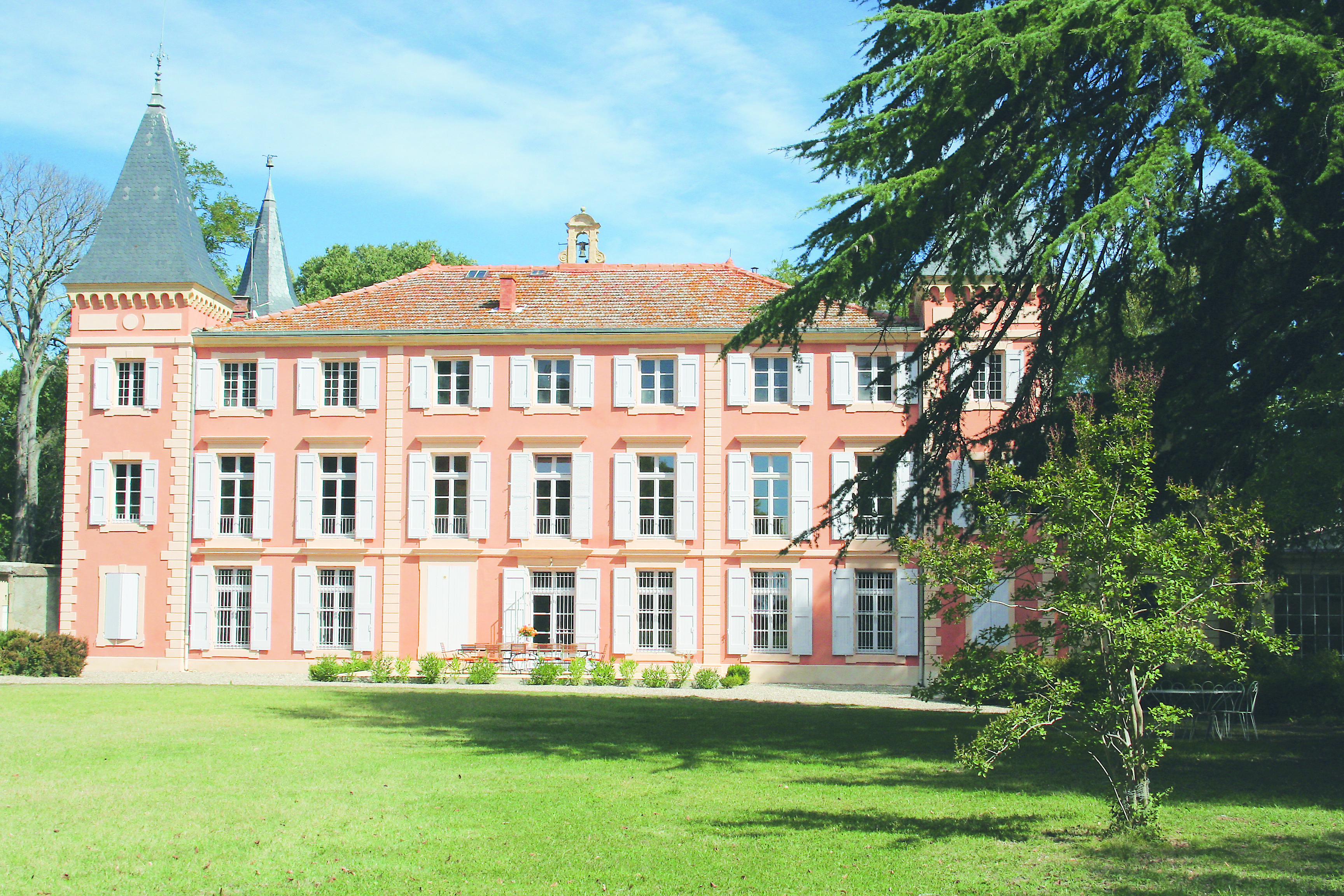
Château Charme du Bois from £430 per night. castlerentals.net; Château du Beau Parc from £7,740 per week. southfrancevillas.com
Subscribe and view full print editions online... Subscribe